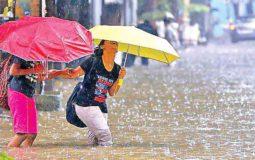Nagpur: The updated syllabus of the newly printed National Council of Educational Research and Training (NCERT) textbooks does not include references to agrarian distress, pollution-related death, and class-based killing by the police.
As per The Hindu, NCERT dropped these topics from the Class 11 Sociology textbook, Understanding Society.
In Chapter 3 – Environment and Society, there is a section titled, ‘Why environmental problems are also social problems.’ NCERT dropped three pages from this section, including two case studies.
The first case study concerns the increase in the number of amusement centres and water parks in water-starved Vidarbha region in Maharashtra. The second study talks about the killing of five people in Wazirpur, Delhi, by the police.
The Vidarbha case study was written by veteran journalist P. Sainath. It first appeared on June 22, 2005, in The Hindu, describing how a water park was established in Bazargaon village of Nagpur district on 40-acre land.
The deleted portion contains the lines: “Bazargaon falls in a region declared as scarcity-hit in 2004. It had never faced that fate before. The village also had its share of six-hour — and worse — power cuts till about May. These hit every aspect of daily life, including health, and devastated children appearing for exams. The summer heat, touching 47, made things worse. All these iron laws of rural life do not apply within Fun and Food Village. This private oasis has more water than Bazargaon can dream of. And never a moment’s break in power supply.”
The second case study was from an article by sociologist Amita Baviskar. It first appeared in the International Social Science Journal, titled ‘Between violence and desire: space, power, and identity in the making of metropolitan Delhi.’ It described the class conflict in the Ashok Vihar area of North Delhi.
In one particular incident, an 18-year-old boy was beaten to death ‘by a group of enraged house owners and two police constables’ while strolling in a park.
The omission of case studies has changed the narrative structure of the whole chapter, turning it into a generic piece about sustainable development without any examples or stories.
Moreover, NCERT has omitted key statistics concerning indoor air pollution-related deaths in India.
The omitted lines included: “But we often don’t realise that indoor pollution from cooking fires is also a serious source. The World Health Organisation has estimated that almost 600,000 people died due to (cumulative) indoor pollution-related causes in India in 1998, almost 500,000 of them in rural areas.”
These deletions have yet to be declared by the NCERT’ says the report. Recent reports on NCERT making changes in textbooks of various subjects, including history, have created quite a furore in the country, with academics and the Opposition parties saying that the government was pushing its “saffron agenda”.
In fact, the Left Democratic Front Kerala government has even declined to accept the changes in NCERT textbooks.
















